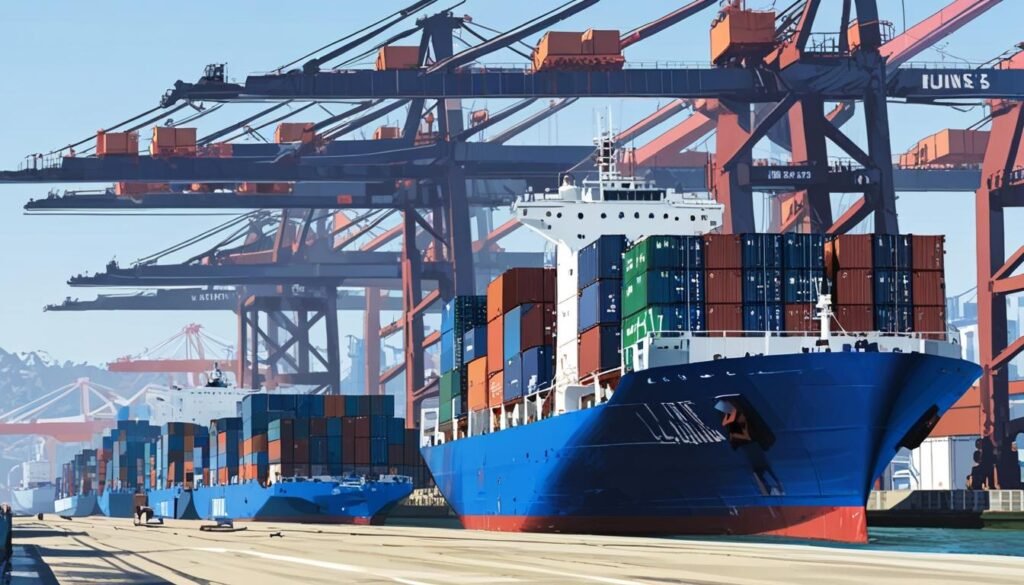**Los Angeles**: The Maersk Skarstind docks amid escalating disputes over new US port fees on Chinese-built and operated ships, sparking Chinese government protests and highlighting broader tensions in maritime trade and shipbuilding policies.
The “Maersk Skarstind” container ship was moored at the APM Port of Los Angeles on Tuesday, 15 April 2025, amid escalating tensions over new port fees imposed on Chinese-built and operated vessels. These fees, slated to take effect in mid-October, form part of the US government’s broader strategy to revive its domestic shipbuilding industry and curb China’s dominance in the sector.
The announcement by the US administration has sparked a response from the Chinese government. On Friday, Foreign Ministry spokesperson Lin Jian addressed the issue, reiterating China’s stance on the imposition of port fees and additional tariffs on cargo handling equipment. Speaking to the media, Lin stated, “Imposing port fees and additional tariffs on cargo handling equipment harm the interests of both others and itself. It raises global shipping costs, disrupts supply chain stability, and increases inflationary pressures in the US, ultimately harming American consumers and businesses, without revitalizing the US shipbuilding industry.”
Lin called on the United States to reconsider its approach, urging the US side “to respect the facts and multilateral rules, immediately cease its wrongdoings.” He further emphasised that China “will take necessary measures to firmly safeguard its legitimate rights and interests.”
The dispute highlights the ongoing complexities in Sino-American trade and industrial policy relations. The US government’s move to introduce these new fees is seen as a measure to bolster its own shipbuilding sector while addressing concerns over China’s significant position in global maritime commerce. However, the Chinese government has framed these steps as detrimental not only to Chinese interests but also to broader global shipping dynamics.
The Maersk Skarstind’s presence at the Los Angeles port is among the visual reminders of the importance of maritime trade routes and the impact that such policy shifts can have on international shipping operations. The port of Los Angeles remains a key hub for global trade, underscoring the interconnected nature of the shipping industry and the potential implications of the new port fees for carriers operating vessels constructed or operated under Chinese ownership.
Source: Noah Wire Services


